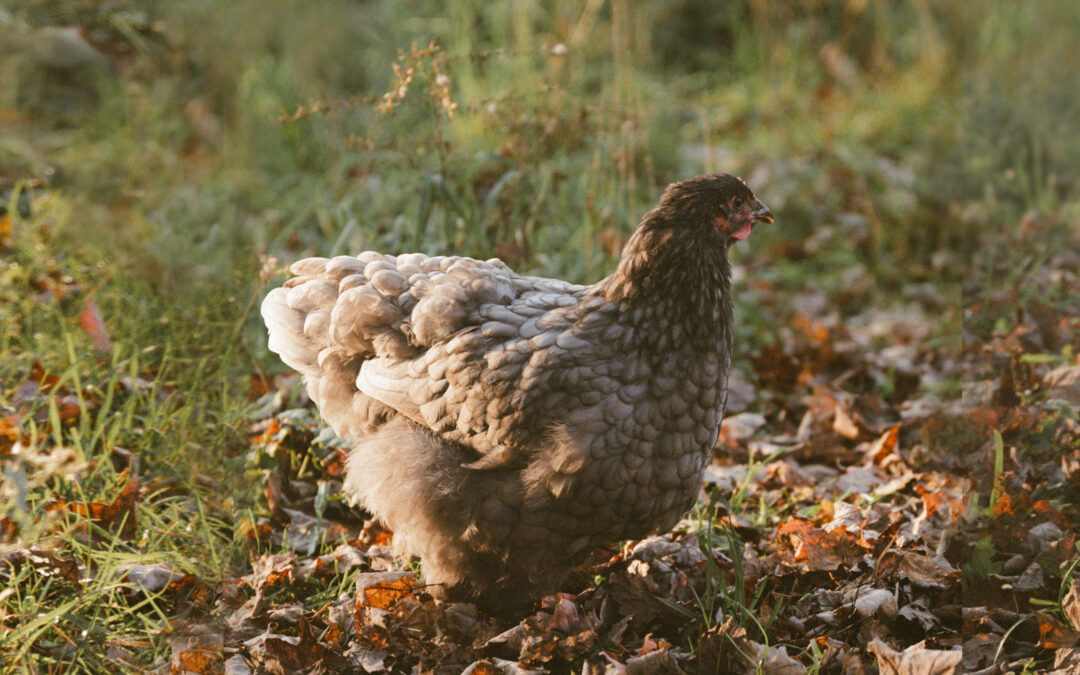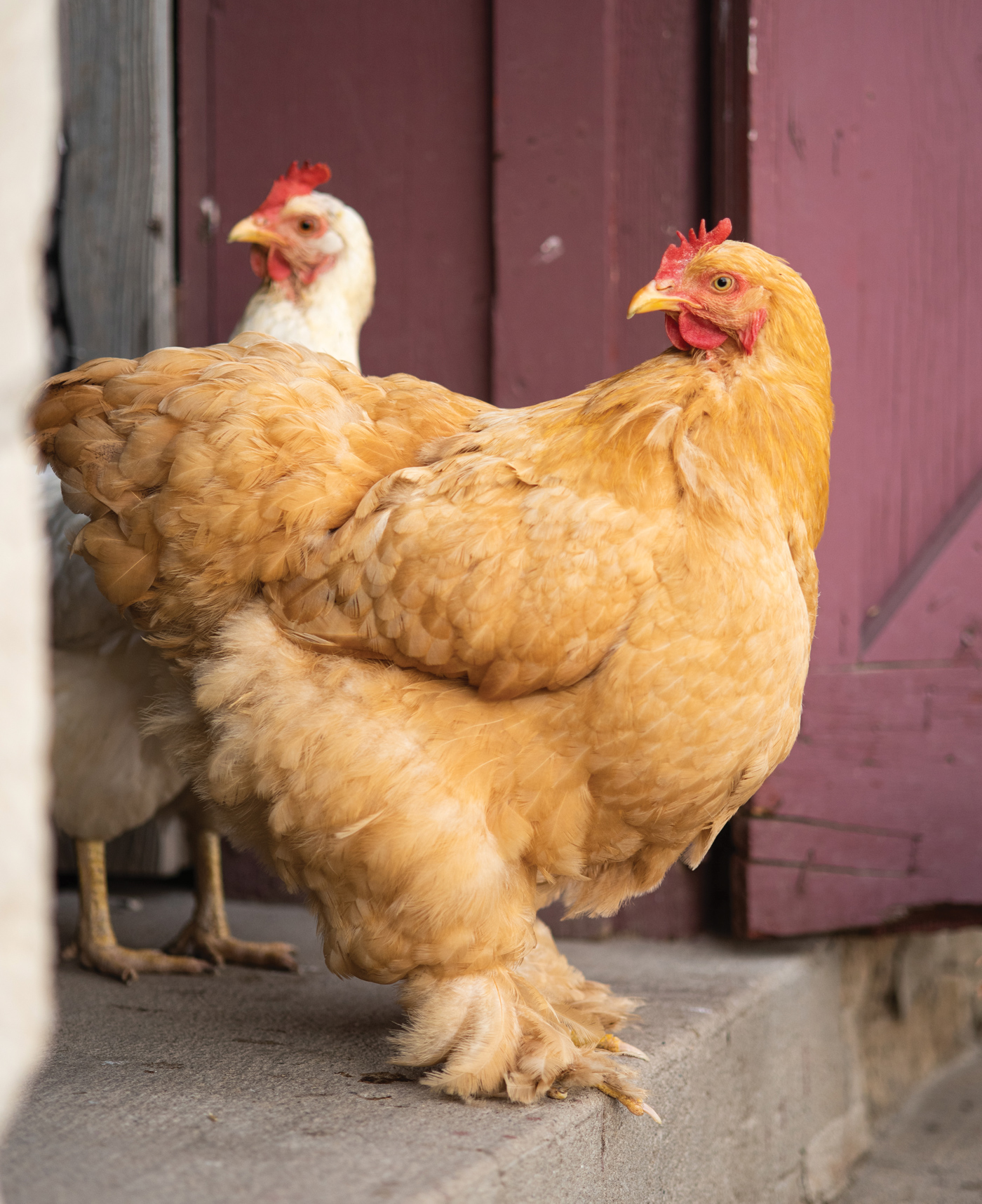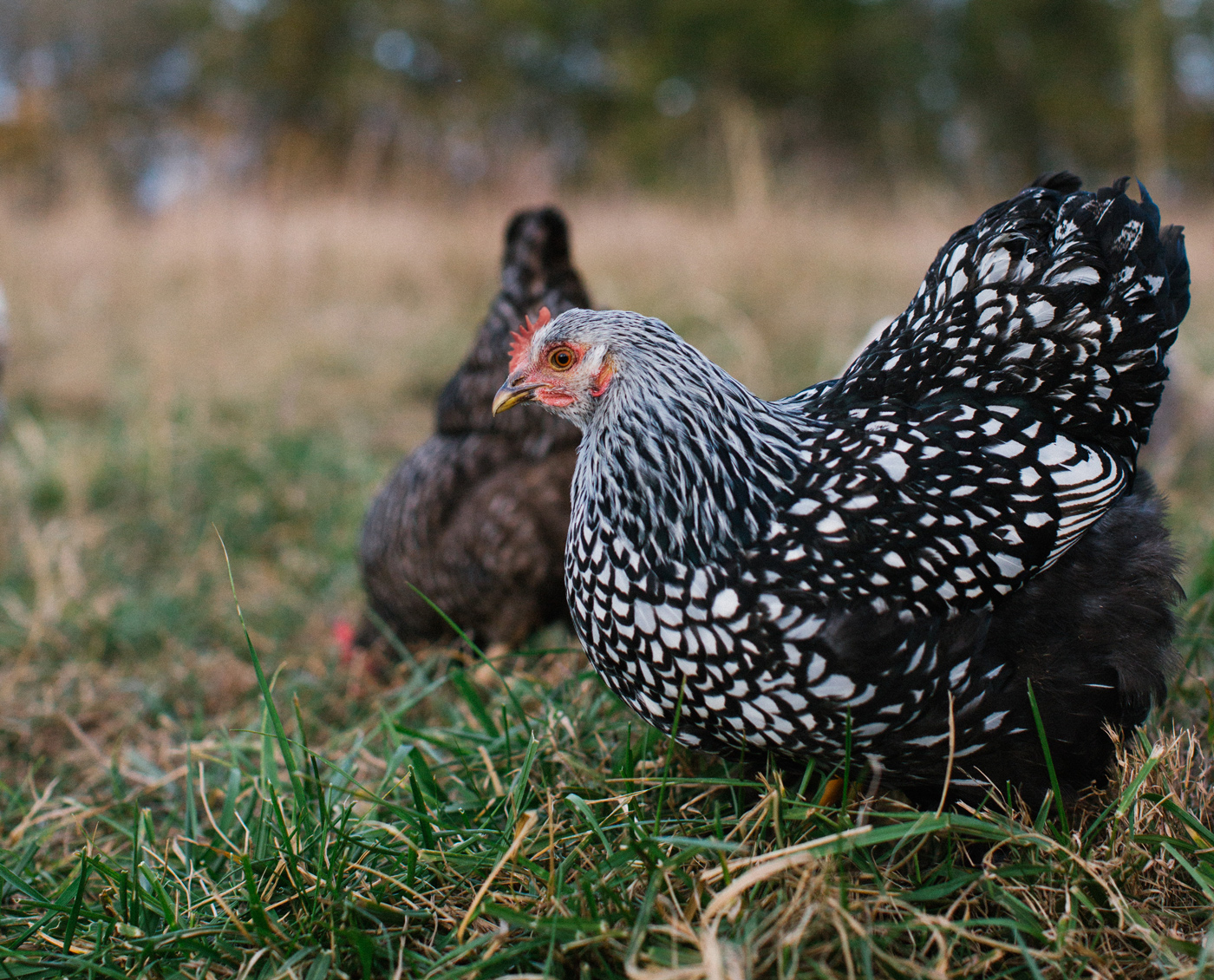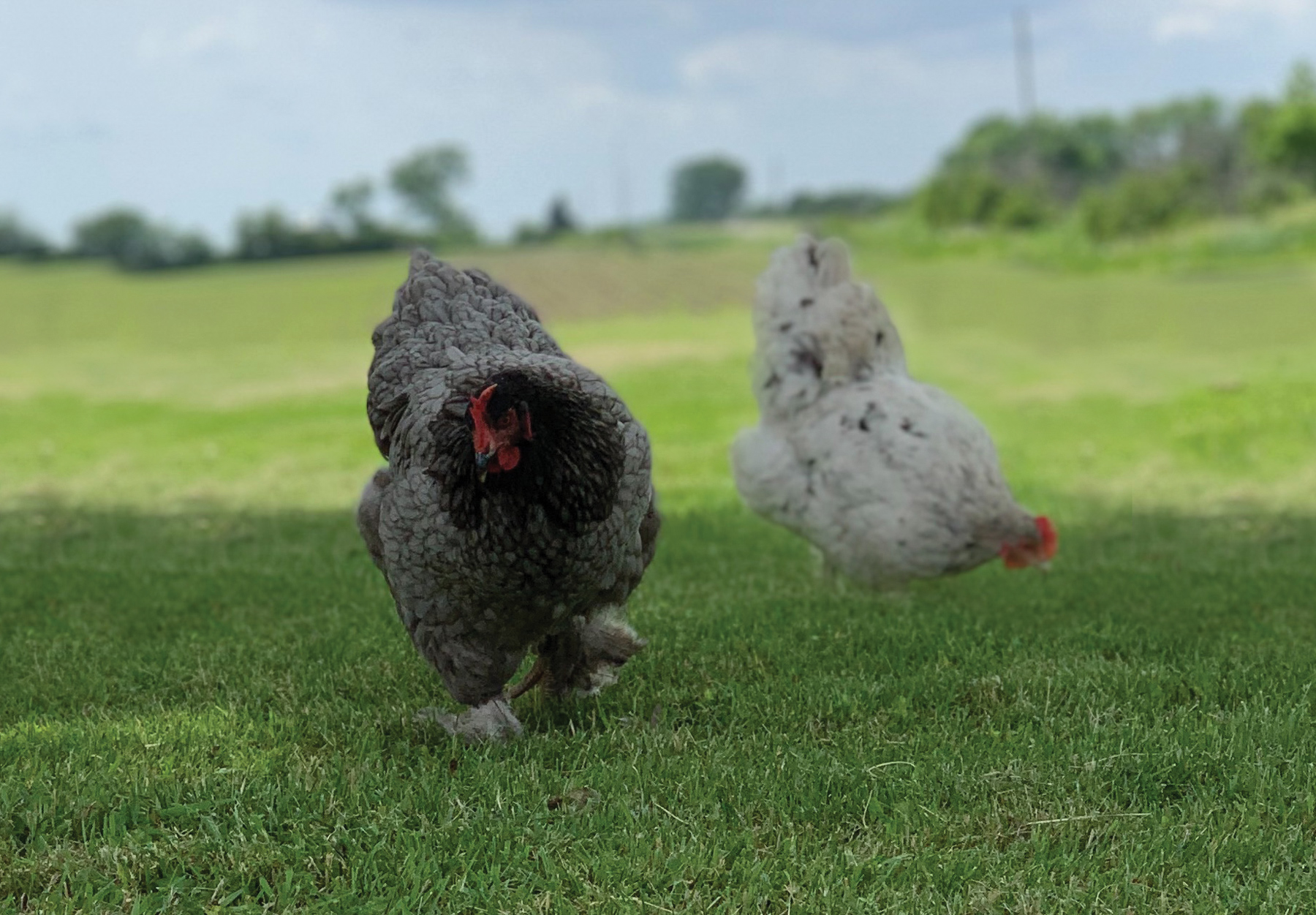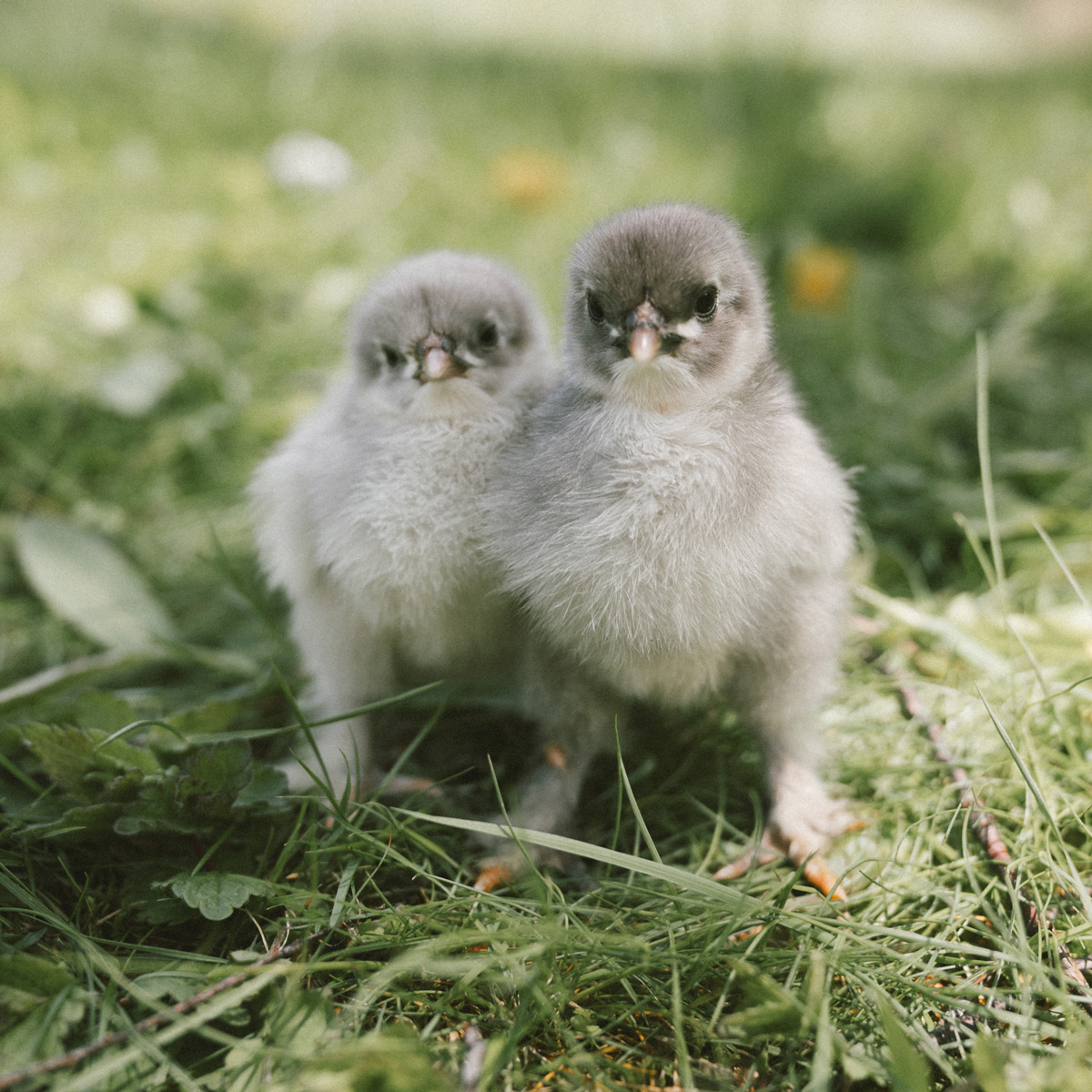Cochins are the OG fancy chicken. They originated in China and were further developed in the UK and US, gradually becoming the gorgeous, super fluffy, feather-footed beauties that we know and love today. They’re foundation breeds for so many chicken breeds and color varieties all over the world that it would be hard to list all of them. The Plymouth Rock, Welsummer, Wyandotte, Orpington, Buckeye, and Barnevelder are all on the list, among others.
Poultry historian Lewis Wright calls the Cochin “the Father of the poultry fancy, and none may dispute his place of honour.” Author Sally Coulthard quotes Wright in her 2022 book, Fowl Play, and explains that the Cochin was the breed that changed how people view chickens. “…this was the moment when the public perception of chickens shifted from backyard scavengers to valuable pets.”
Cochin Heritage Chickens | Basic Breed Information
Cochins are members of the Asiatic class, along with Brahmas and Langshans. They are large, extremely well-feathered and fluffy chickens that take a long time to grow and mature. They are used by some as a dual purpose chicken, but the majority of those who keep and breed Cochins do so for showing, and as pets/layers. They come in a variety of gorgeous colors, and are known the world over for their gentle personalities and calm disposition. As of 2023, The Livestock Conservancy has moved the Cochin down from Recovering into the Watch category of the Conservation Priority List.
There is a Bantam Cochin, but it is actually a separate breed known to the rest of the world as the Pekin. Standard sized Cochins were bred into Pekins at various points, but they are not simply a large counterpart to the Bantam Cochin. Pekins were originally bred and kept on the grounds of the Summer Palace in Beijing, China.
Cochin Heritage Chickens | Size and Appearance
The breed standard in the American Poultry Association (APA) Standard of Perfection (SOP) calls for large fowl Cochin roosters to weigh about 11 pounds, and hens to weigh about 8.5 lbs. They have a lot of feather coverage, but the parts of their faces that do show are red. They have red earlobes and medium sized straight combs. Their sturdy legs and feet are yellow and heavily feathered down the outsides of the legs and the middle and outer toes. Cochins hatch with feathered legs and toes, making them ridiculously cute chicks! The tails on adult hens and roos are short and wide, and add to their large, fluffy appearance. Hens have an exceptionally wide and fluffy cushion in front of their tail, giving them a super fluffy booty.
The APA notes in the SOP that the original Cochins were Buff in color, but by 1974 there were four color varieties admitted – Buff, White, Black, and Partridge. In the ensuing years, several more colors have been added including Silver Laced, Gold Laced, Blue, Brown, and Barred or Cuckoo.
Cochin Heritage Chickens | History
We found no clear answer about when and how the Cochins first arrived in the US. Maybe on a tea clipper ship coming in from China or another part of Asia? They were definitely present by the midpoint of the 19th century. Shanghais (the early name for our modern day Cochins) were documented as being in Boston for the first poultry show in 1849, and they appeared in the first printing of the APA SOP in 1874.
Queen Victoria is probably the most famous Cochin lover in history. She absolutely loved animals and kept a variety of poultry and fowl. Not long after she took the throne in 1837, Victoria commissioned the building of a large aviary on the grounds of Windsor Castle. Sources say she spent a lot of time there with her different birds. However, it was the gift of five Cochin-China hens and two roosters by Edward Belcher, an officer in Her Majesty’s Navy, that delighted her most.
In an interesting twist, the chickens that we call Cochins were not the same birds known as Cochins in China. The famous Cochin-China fowl that first captivated Queen Victoria were large birds much closer in appearance to a Malay and may have had a completely different name in Asia. The birds that we know as Cochins first showed up in the UK in 1847, onboard a tea clipper ship docked in London. They were large, fluffy, and feather-legged. At first they were called Shanghai fowl — the place from which they were imported — but for some reason people persisted in calling them Shanghai-Cochins and later just Cochins. It was this new “Cochin” that ignited ‘Hen Fever’ in the UK and the US as well.
It wasn’t just Cochins that were swept up in Hen Fever. Brahmas, Sebrights, Dorkings, and even White Faced Black Spanish were among the breeds selling for exorbitant sums of money. The upper and middle classes could not get enough of breed specific chickens! The craze was fueled by the 19th century interest in naturalism and by the opening of Asia. The Industrial Revolution also helped create more wealthy people who could afford to spend money on pet chickens.
Cochin Heritage Chickens | Laying and Hatching
These days, Cochins are generally still kept as pets, show birds, and good broody hens. They’re great at hatching ducks and geese because they’re big enough to fit those larger eggs under them, and hens tend to have wonderful mothering instincts. Cochins are so gentle and laid back that they make excellent family pets, and do very well in a mixed flock of other gentle breeds. Hens are not the best layers, but they’ll give you 2-3 large brown eggs per week and will happily hatch out chicks for you, too! They’re probably not the most practical breed for homestead layers, but they more than make up for it in looks, sweetness, and a willingness to brood. They are plus-size supermodels and some of the best hens ever to hug!!
Cochin Heritage Chickens | Ideal Living Conditions
Because of their extreme fluffiness, Cochins are quite cold hardy, but their straight combs will need some protection from frostbite. Take care in winter that their foot feathers don’t become caked in ice or snow, which can also lead to frostbite. Cochins don’t do well with very high temperatures and will need fans and some extra TLC to get them through hot spells.
Cochins are one of our absolute favorite breeds of chicken. If you want a chicken with that little bit of “extra,” get yourself some Cochins.
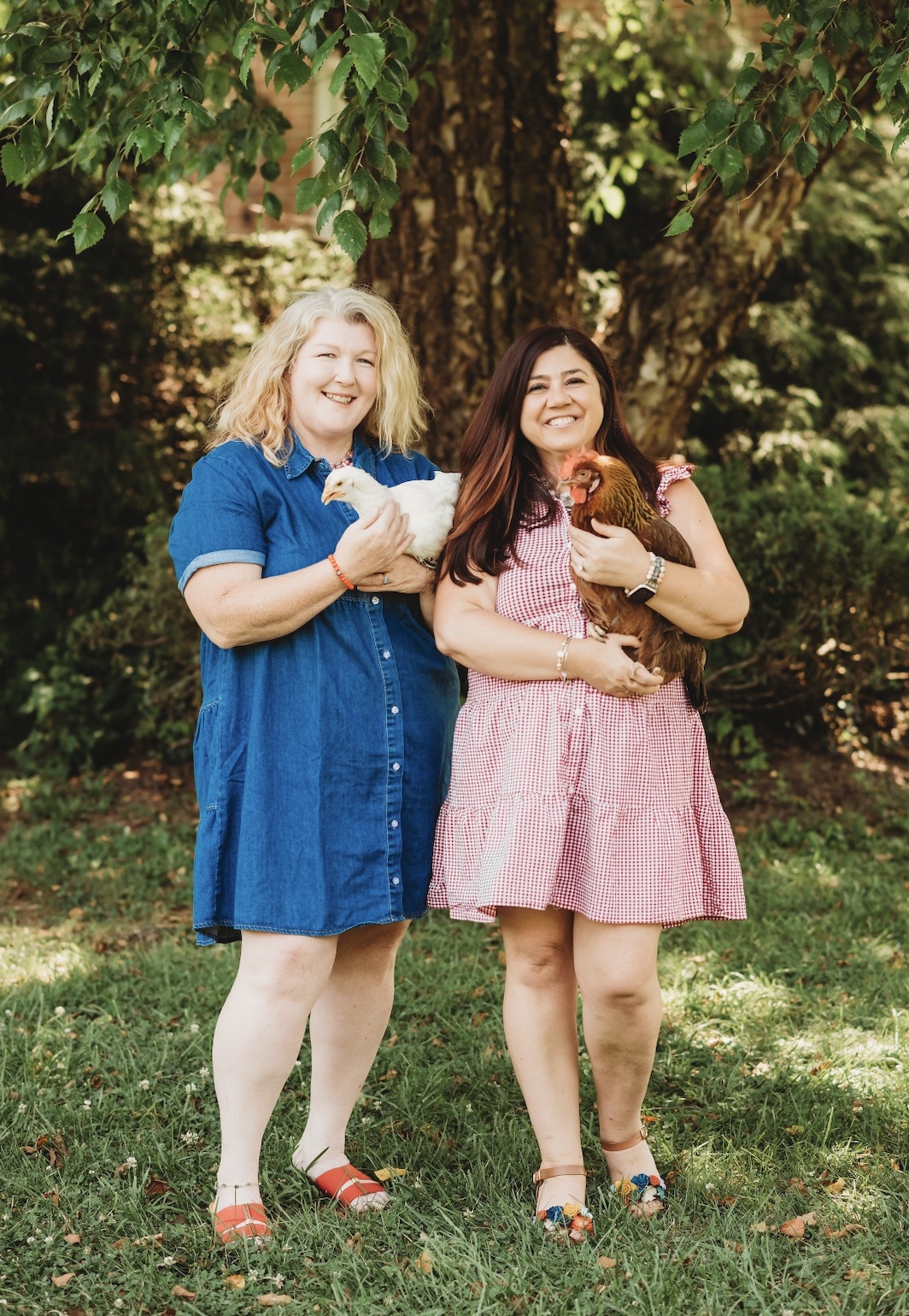
Holly Callahan-Kasmala grew up as a 4-H kid on a small horse farm. She has been keeping chickens for more than 20 years, and is passionate about Heritage chickens and helping people find the right breed for their needs. Holly has an MA in History, and is a long-time fiber artist/teacher. In addition to keeping Heritage breed chickens and rare breed sheep, she also grows heirloom cotton, dye plants, and all kinds of heirloom vegetables, fruit, and flowers on her small Maryland farm. She is the creator and co-host of Coffee with the Chicken Ladies Podcast.
Chrisie DiCarlo is a retired veterinary technician with a passion for helping people care for their poultry. During her 15 years in the field, she managed a technical trauma nursing care team in a busy urban veterinary hospital ER. She gave up her career to be a stay-at-home mom to her two amazing daughters. Chrisie has been keeping chickens for more than 7 years. She also loves growing herbs, fruit, and flowers on her small Maryland farm. She is the creator and co-host of Coffee with the Chicken Ladies Podcast.
Catch up on episodes of Coffee with the Chicken Ladies Podcast, stay up to date on their website, and follow along on social media.
Featured photos by Toni Walley, Teddi Yaeger, Nina and Wes Mullins, and Shayla Christianson.
Coffee with the Chicken Ladies Podcast
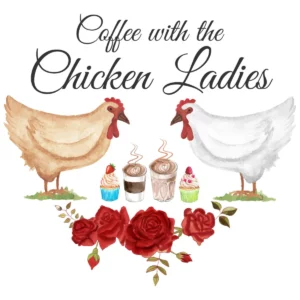 Coffee with the Chicken Ladies is a weekly podcast hosted by Chrisie DiCarlo and Holly Callahan-Kasmala. The podcast covers all things Pet Chicken! Each episode includes a breed spotlight, a relevant chicken keeping topic, a recipe using fresh eggs, and some retail therapy! The Chicken Ladies also feature interviews with expert guests who span the chicken keeping world. You’ll find the latest podcast episodes on their website, as well as other podcasting platforms.
Coffee with the Chicken Ladies is a weekly podcast hosted by Chrisie DiCarlo and Holly Callahan-Kasmala. The podcast covers all things Pet Chicken! Each episode includes a breed spotlight, a relevant chicken keeping topic, a recipe using fresh eggs, and some retail therapy! The Chicken Ladies also feature interviews with expert guests who span the chicken keeping world. You’ll find the latest podcast episodes on their website, as well as other podcasting platforms.
You can learn more about Heritage Cochin chickens by listening to Episode 112 of their podcast.

